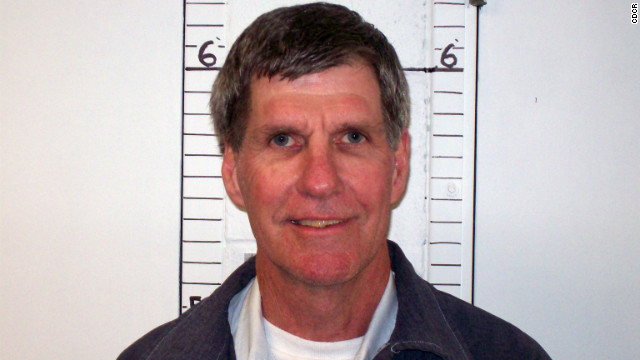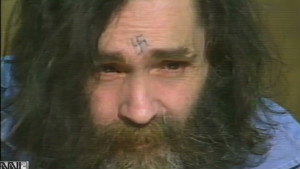Judge declines to reverse order giving Manson follower tapes to police
updated 9:32 PM EDT, Wed June 13, 2012

Charles "Tex" Watson.
STORY HIGHLIGHTS
- A bankruptcy judge rejects a request by Charles "Tex" Watson
- Watson wanted police to only listen to his personal tapes, not take possession of them
- Los Angeles police believe the tapes might have clues about unsolved killings
- In a letter to CNN, Watson says "there are no unsolved murder committed by the Manson Family"
Police want decades-old recordings between Watson and his attorney because authorities believe the tapes might provide new clues about unsolved killings involving followers of Manson, according to court documents.
Watson asked the judge to allow police to listen to all recordings in the presence of a court trustee or other designate but not take possession of them as the judge earlier ordered. The judge declined Watson's request to reconsider that order.
 Manson tapes shed light on cold cases?
Manson tapes shed light on cold cases?
"To the extent Watson seeks a remedy regarding the LAPD's use of the recordings, or to prevent their release to the media, such matters are governed by nonbankruptcy law and can be addressed to a court of competent jurisdiction," Chief U.S. Bankruptcy Judge Brenda T. Rhoades wrote in her ruling.
In the meantime, Los Angeles police plan to pick up the tapes on Friday, spokesman Cmdr. Andrew Smith told CNN.
In a new letter to CNN, Watson asserted that "there are no unsolved murders committed by the Manson Family."
The tapes are about eight hours of recordings between Watson and his attorney from 1969, Bill Boyd of McKinney, Texas, whose law firm is now a debtor in U.S. Bankruptcy Court in the same state, court papers said.
According to court documents, Watson waived his attorney-client privilege to the tapes in 1976, and his attorney received partial payment for his legal fees when he gave a copy of the tapes to Chaplain Raymond G. Hoekstra, who subsequently wrote a book, "Will You Die for Me: The Man Who Killed for Charles Manson Tells His Own Story."
Watson wrote a June 5 letter to CNN: "There is nothing new on the tapes that was excluded from my book 'Will You Die For Me?' The book was co-authored to show delicate consideration when sharing the graphic details of the crime in order to show respect towards the families of the victims."
Watson, Manson and three others -- Susan Atkins, Patricia Krenwinkel, and Leslie Van Houten -- were convicted of murder and other charges in a two-night rampage that left pregnant actress Sharon Tate and seven others dead, including Leno and Rosemary LaBianca.
The gruesome killings were chronicled in the best-seller "Helter Skelter," and in Wednesday's court ruling, the judge notes that "Watson expresses concern that the contents of the recordings may be hurtful to the families of his victims in the Tate-LaBianca murders."
In 2008, Watson wrote CNN that he was aware of no bodies buried in a remote Death Valley, California, site called Barker Ranch, the hideout for Manson and his family, when CNN did a report about a corpse-sniffing dog visiting the site.
In court filings last week, Watson requested "that the Tapes not be turned over to the LAPD, because they are not a creditor to my late attorney Bill Boyd, God rest his soul" and "because repercussions of the motion have not been fully considered by all parties concerned."
Added Watson in court documents: "... this case is high notoriety, with much media attention. For this reason, special consideration should be made with who takes possession of The Tapes, so they will not be misused for purposes unintended by the court and that could be hurtful to the families of the victims."
Watson, 66, was convicted of seven counts of first-degree murder and was denied parole for the 16th time in November. He will be considered again in 2016, according to the California Department of Corrections and Rehabilitation.
No comments:
Post a Comment